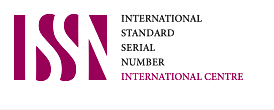THE 7 HABITS OF HIGHLY EFFECTIVE PEOPLE AND WORK-LIFE BALANCE OF PRIVATE ORGANIZATION EMPLOYEES
Abstract
There are few researches in Thailand about the relationship between the seven habits of highly effective people and work life balance. The purpose of this research was to study the direct effect of the seven habits of highly effective people towards work-life balance. A quantitative method was used to survey 326 samples that consisted of 111 supervisors and 215 operators who worked in private organization. Data were analyzed using Mplus and R program. Skewness, kurtosis, outliers and fit index were examined for multilevel causal analysis. The Pearsons’s correlations of all the variables were. The researcher tested the mediating effect model and access the model fit, Chi-square (χ2), the Tucker-Lewis index (TLI), the comparative fit index (CFI) and root mean square error of approximation (RMSEA). The results found that the seven habits of highly effective people directly affected the work-life balance of operators, both on an individual level and across the levels at a level of .001. Implications of this study show the relevance of disciplines such as transformational leadership and organizational commitment So, it is suggested that we should integrate other concepts that affect to work life balance in next research such as sociology and psychosocial in order to apply and use not only in private but also in every organizations. The study should develop from a grounded theory research method, it might be possible to define and measure the scale that reflects work life balance that more fit for Thai society.
Full Text:
PDFRefbacks
- There are currently no refbacks.
Copyright (c) 2022 IPRC
Tim Editorial Office
Office: Faculty of Psychology, University of Mercu Buana
(Campus-A Meruya) Building D 202, 2nd Floor Jalan Meruya Selatan No. 1, Kembangan, West Jakarta
Phone: +62 858 857 92245 (WhatsApp text only)
Email: [email protected]
Website: https://iprc.mercubuana.ac.id/









